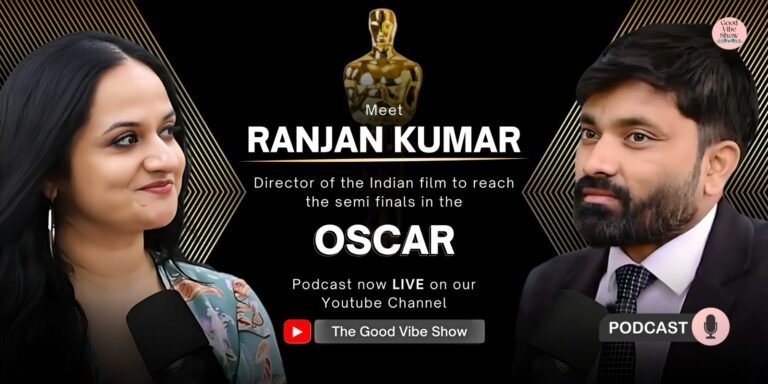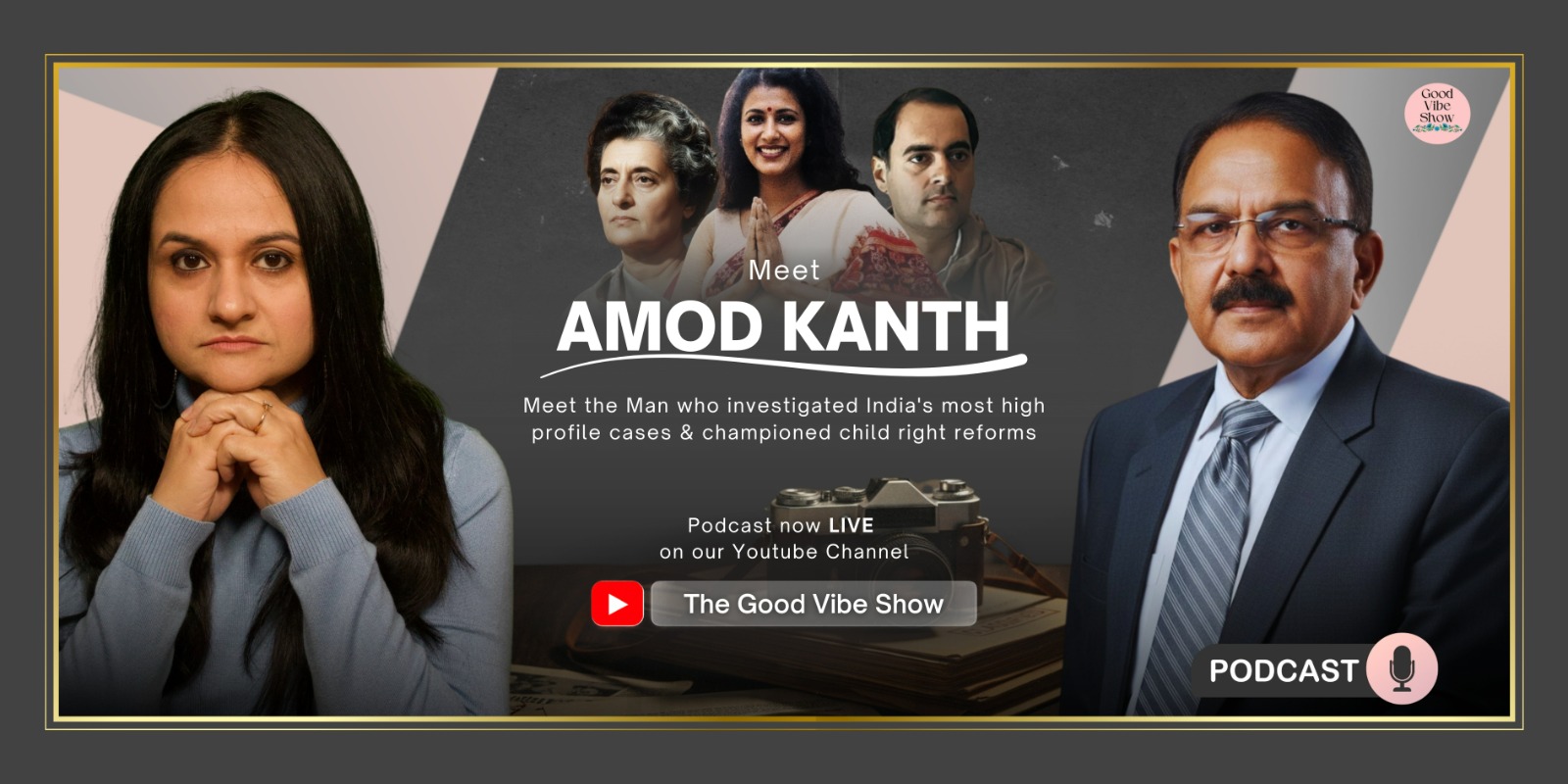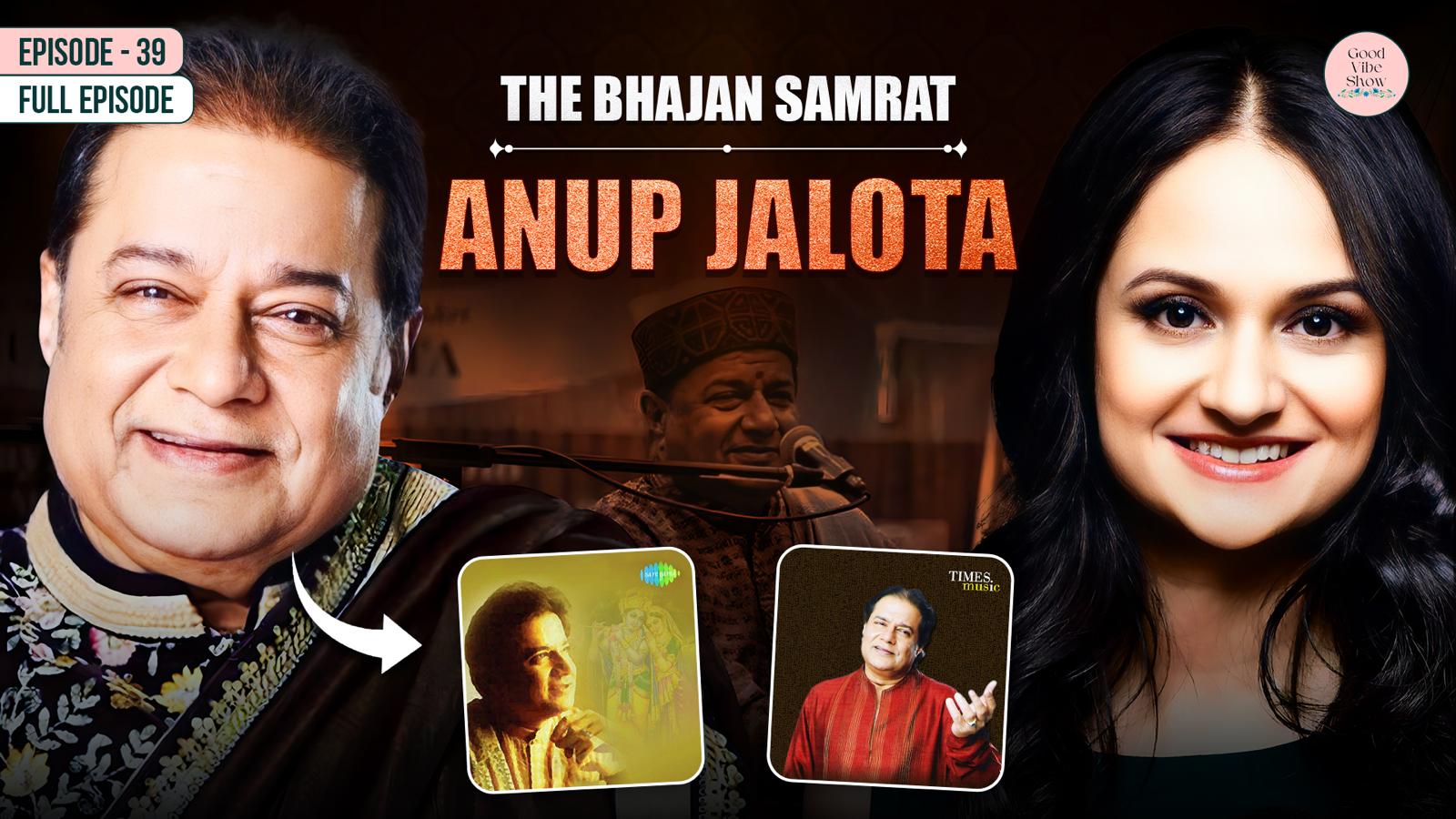A Good Vibe Show Exclusive
From the heart of Bihar to the global stage of the Student Academy Awards, filmmaker Ranjan Uma Krishnakumar proves that powerful stories don’t need big budgets — just real emotions.
His film Champaran Mutton, made as an FTII diploma project, is the first-ever film in the Bajjika dialect. What began as a student project in a small village turned into a global conversation about authenticity, language, and the emotional core of cinema.
The Story Behind Champaran Mutton
Shot with a five-member student crew, local actors, and limited resources, Champaran Mutton explores relationships, desires, and rural life with disarming honesty.
It’s not just about food — it’s about love, longing, and the small dreams that define us.
“A language isn’t just dialogue. It’s the memory of a people.” — Ranjan Uma Krishnakumar
That belief turned a regional story into a universal one — earning recognition at the Oscars Student Awards.
What Shaped His Filmmaking
After FTII, Ranjan worked with TVF, learning the discipline of writers’ rooms, and later assisted Sanjay Leela Bhansali, discovering the art of visual storytelling on a grand scale.
For him, good cinema isn’t about messages — it’s about moments that move you.
“Characters and stories matter — but emotions come first.”
His Message to Young Filmmakers
Ranjan’s journey speaks to every dreamer from small towns:
-
Stay Rooted: Your dialect, your soil — that’s your strength.
-
Read Widely & Watch Deeply: From Ray and Renu to Malayalam and Iranian cinema.
-
Start Small: Don’t wait for permission — pick up a camera and tell your story.
“Start right now. Read, feel, create — your story deserves to be told.”
🎧 Watch the Full Episode
Hear the full story — his struggles, inspirations, and the making of Champaran Mutton — only on The Good Vibe Show.
🎥 Watch Now: From Bihar to the Student Academy Awards – The Journey of Ranjan Uma Krishnakumar
🔗 Click to Watch the Full Episode
—
Frequently Asked Questions
1) How did Ranjan feel when he learned the film was selected for the Student Academy Awards?
It felt dreamlike. Getting that first email from the Oscars made him feel something meaningful was finally happening.
2) Why make Champaran Mutton in the Bajjika dialect?
His roots are in Vaishali/Champaran, so he wanted the story told in the language of that soil. He didn’t plan to be the “first”—authenticity led the choice.
3) What makes Champaran Mutton unique?
It’s the first film in Bajjika and treats language as culture and memory, not just dialogue—capturing tenderness, small dreams, and rural struggles.
4) How are FTII diploma films made?
A five-member student team (Direction/Writing, Camera, Editing, Sound, Production Design) collaborates under tight resources; the director writes and directs.
5) What was the biggest production challenge?
Limited budget and logistics—bringing regional actors to Pune was hard. When a key actor couldn’t make it, Ranjan acted himself out of necessity.
6) Is making films in regional dialects an advantage or a challenge?
Both. It brings authenticity and distinction, but funding and distribution often push for Hindi/“universal” languages. Regional films also preserve culture.
7) What is “good cinema” to Ranjan?
A film doesn’t need a message—it must touch you. If a feeling lingers (even with no dialogue), the cinema has worked.
8) In storytelling, what matters most—characters, story, or emotions?
All matter, but emotions come first; they give characters and story their meaning and staying power.
9) Why was Chandan Roy cast in the lead?
Ranjan needed a performer who felt genuinely rural and lived-in. Chandan’s rootedness fit the world of the film perfectly.
10) What did Ranjan learn at TVF and with Sanjay Leela Bhansali?
TVF taught writers’ room discipline and show development; assisting SLB revealed large-scale set craft, visual nuance, and industry rigor.
11) What’s Ranjan’s view on nepotism as an outsider?
The path is harder, but talent creates its own openings. With persistence and craft, recognition comes and becomes hard to ignore.
12) What advice does he give aspiring filmmakers from small towns?
Stay rooted, read widely (Premchand to Tolstoy), watch deeply (Ray, Ghatak, Malayalam/Iranian cinema), start small, and collaborate—begin now.






